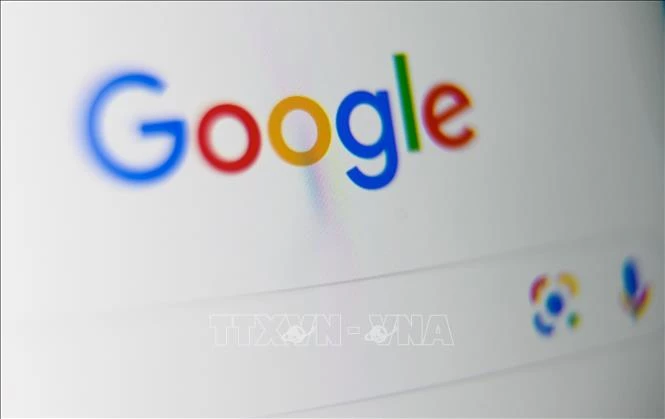DNVN - The US Department of Justice has just proposed strong restructuring measures for Google, including forcing the company to sell the Chrome browser.

Google logo on tablet screen. Photo: AFP/TTXVN
In November, the Department of Justice made a clear statement: “Google must divest Chrome,” in order to deal with its monopoly in online search.
The proposal comes after a landmark court ruling last August, in which a federal judge concluded that Google had violated antitrust laws by illegally dominating the internet search market.
For Android, the US Department of Justice proposed two options: either Google divests, or accepts government control.
Both proposed measures involving Android and Chrome would be a major challenge for Google, especially in the advertising business that is the company's main source of profit.
Google's chief legal officer, Kent Walker, described the Justice Department's measures as "stunning" and "extreme." Google plans to file its own proposals next month and continue to appeal in court.
Losing Chrome would require Google to dramatically change the way it operates, according to Syracuse University professor Beth Egan. The company currently relies on data from the browser to inform other services and improve its algorithms.
Google's advertising business relies heavily on its search engine, and the Chrome browser is the second-largest in the company's ecosystem. According to the Guardian (UK), Chrome is currently the most popular browser globally, accounting for nearly two-thirds of internet users. Bloomberg also estimates that the browser has more than 3 billion users worldwide and is valued at about $15 billion.
Without Chrome, Google's advertising business would be severely impacted, and the company's reach would shrink.
### Opposing Views
Chrome logo on the phone screen and Google logo in the background. Photo: Getty Images/TTXVN
Google argues that forcing it to divest Chrome could undermine America’s global tech position. The Justice Department, in turn, argues that Google’s monopolistic behavior is actually harming that position.
The Justice Department has stressed that its primary goal is to increase competition in the marketplace. In court filings, the department said it wants to expand opportunities for competitors, prevent Google from continuing to benefit from its illegal behavior, and prevent the company from monopolizing the market in the future.
But the prospect of Google selling Chrome remains unclear. The Biden administration is stepping up scrutiny of big tech companies as it winds down, but the Trump administration’s stance is unclear. Trump’s pick for attorney general will take office in January and decide whether to continue or rescind the request for Google.
The Google ruling is a testament to the effectiveness of antitrust law in the United States, which has existed for more than 100 years. Like many other countries, the United States also uses this law to deal with monopolies through the court system. In 1911, antitrust law forced John D. Rockefeller's Standard Oil Corporation to dissolve.
In the 1960s and early 1970s, US regulators kept a close eye on monopolies, but in the 1980s, influenced by the Chicago School of Economics, regulators loosened their grip, as economists came to see monopolies as acceptable if they were run efficiently. This led to a reduction in structural interventions in the years that followed, says Ulrich Müller of the non-profit Rebalance Now.
About 20 years later, Microsoft became the target of antitrust regulators. A U.S. court ruled that Microsoft should be broken up for monopolistic behavior. The company had tightly integrated its Windows operating system with its Internet Explorer browser, driving rival Netscape out of the market. Microsoft successfully appealed and avoided the breakup by allowing its rival access to certain parts of its system.
Thanh Mai (t/h)
Source: https://doanhnghiepvn.vn/cong-nghe/vi-sao-gioi-chuc-my-gay-ap-luc-de-google-ban-chrome/20241128093613348



![[Photo] Overcoming all difficulties, speeding up construction progress of Hoa Binh Hydropower Plant Expansion Project](https://vstatic.vietnam.vn/vietnam/resource/IMAGE/2025/4/12/bff04b551e98484c84d74c8faa3526e0)
![[Photo] Closing of the 11th Conference of the 13th Central Committee of the Communist Party of Vietnam](https://vstatic.vietnam.vn/vietnam/resource/IMAGE/2025/4/12/114b57fe6e9b4814a5ddfacf6dfe5b7f)



























































































Comment (0)